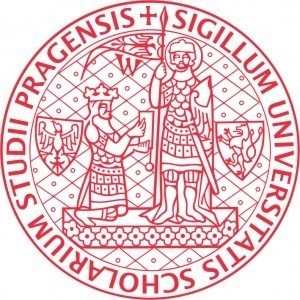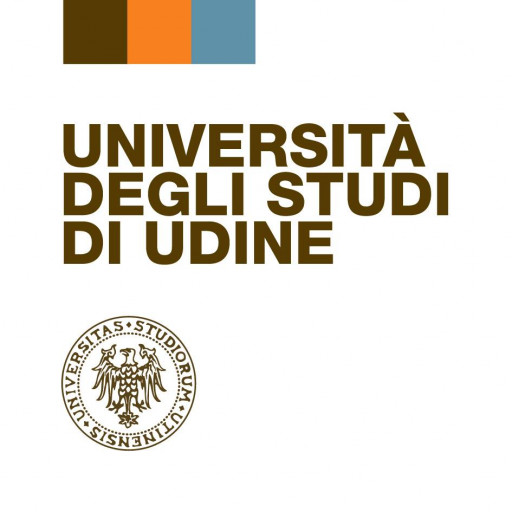Photos of university / #_charles.university_
The Mathematics undergraduate program at Charles University offers students a comprehensive and rigorous education in pure and applied mathematics, equipping them with the theoretical knowledge and practical skills necessary for a wide range of scientific, technical, and academic careers. The program is designed to provide students with a solid foundation in fundamental mathematical disciplines, including algebra, analysis, geometry, topology, and mathematical logic, while also offering specialized courses in areas such as numerical analysis, mathematical physics, and computer science.
Students benefit from the university's distinguished faculty, who are active researchers and experienced educators committed to quality teaching and mentorship. The curriculum emphasizes not only theoretical understanding but also problem-solving skills and the ability to apply mathematical concepts to real-world situations. Throughout the program, students have opportunities to participate in research projects, attend seminars, and collaborate with peers and faculty members, fostering a stimulating academic environment conducive to personal and intellectual growth.
The program is designed with flexibility in mind, allowing students to tailor their studies according to their interests and career goals. The inclusion of elective courses enables specialization in fields such as cryptography, operations research, probability theory, and mathematical modeling. In addition, the program prepares students for further study at the graduate level or for roles in industry, finance, IT, education, and research institutions.
Various extracurricular activities, workshops, and internships are organized to enhance practical skills and facilitate networking with professionals in the field. The overall goal of the program is to develop mathematically literate graduates who are capable of critical thinking, complex analysis, and innovative problem-solving, ready to contribute to advancements in science and technology. Students who complete this program will have a strong mathematical foundation, analytical mindset, and the adaptability needed to succeed in a rapidly evolving technological landscape, positioning them for successful careers in academia, industry, or entrepreneurship.
It offers degrees in several study branches ranging from pure abstract mathematics to applications in various fields:
- Mathematical Structures
provide deep knowledge of advanced algebra, geometry, logic, and combinatorics. - Mathematical Analysis
focuses on advanced real function theory, complex analysis, functional analysis, ordinary and partial differential equations. - Numerical and Computational Mathematics
deals with design, analysis, algorithmization, and implementation of methods for computer processing of mathematical models. - Mathematical Modeling in Physics and Technology
is an interdisciplinary field connecting mathematical analysis, numerical mathematics, and physics to develop and apply mathematical models of natural phenomena. - Probability, Mathematical Statistics and Econometrics
offers advanced courses in probability theory, optimization, statistical modeling, and random processes, and applies the methods to solve problems from economics, technology, natural sciences, and informatics. - Financial and Insurance Mathematics
focuses on mathematical methods for finance, life and non-life insurance, and financial management.
The graduates find employment not only at universities and research institutes, but also in banks, financial and insurance companies, pharmaceutical industry, software industry, marketing, or telecommunication companies.
- hold or be working towards a bachelor’s or master’s diploma and provide a certified copy thereof; in cases required by law, a certification of equivalence of education must accompany the application,
- have sufficient academic background in the relevant fields (see below for details); this can be demonstrated by passing the specialized entrance examination in June 2017 in Prague that is organized by the Faculty of Mathematics and Physics, or by providing transcripts (academic records) of your previous education accompanied by syllabi of the completed courses; promising students who do not have this background may be admitted with the provision that they complete the missing Bachelor’s courses,
- have sufficient command of the English language; this can be demonstrated by providing your results in one of the standardized English tests that we recognize (see below for details).
- a statement of purpose in which you describe your reasons for applying to the proposed programme, your study and possibly also research interests and future career plans,
- letters of recommendation as recent as possible from professors and employers who can comment on your recent professional accomplishments and your qualifications for pursuing a Master’s degree in mathematics or computer science.
Academic background
Common requirements for all study branches: A sound background in linear algebra, real and complex analysis, measure theory and probability theory.
Study branch Mathematical Structures: Common requirements + group theory, mathematical logic.
Study branch Mathematics for Information Technologies: Common requirements + commutative and computer algebra, theoretical and applied cryptography.
Study branch Mathematical Analysis: Common requirements + general topology, functional analysis, ordinary and partial differential equations.
Study branch Numerical and Computational Mathematics: Common requirements + numerical mathematics, functional analysis, ordinary and partial differential equations.
Study branch Mathematical Modelling in Physics and Technology: Common requirements + classical mechanics, functional analysis, ordinary and partial differential equations.
Study branch Probability, Mathematical Statistics and Econometrics: Common requirements + mathematical statistics, Markov chains.
Study branch Financial and Insurance Mathematics: Common requirements + mathematical statistics, Markov chains, financial mathematics.
Academic records demonstrating the necessary background must show the dates of enrolment and the subjects or courses taken, together with the units of credit or time allotted to each subject. The records must also include a complete description of the institution’s grading scale or other standard of evaluation. Unless academic records and diplomas are routinely issued in English by the institution, the official records in their original language must be submitted with an authorized, complete, and exact English translation.
Entrance examination – Master’s programme
Applicants who will not sufficiently demonstrate the necessary background listed above by May 9, 2017, or with their application, will be invited to take the entrance examination in Prague. The entrance examination for a Master’s programme at the Faculty of Mathematics and Physics at Charles University consists of four problems, each worth 25 points. In case of an incomplete solution a proportional number of points will be given. The maximum total score is 100. The minimum score for admission is 40 points out of 100. Depending on the study programme and study branch, the examination has the following structure (the links provide a more detailed description of the topics for the entrance examination in pdf):
Master of Mathematics
Study branch Financial and Insurance Mathematics: Mathematics (2 problems), Probability and Statistics (1 problem), Financial Mathematics (1 problem). You might wish to look at sample tests: the 2013 test (pdf) and it’s solution (pdf), or the 2014 test (pdf) and it’s solution (pdf), or the 2016 test (pdf) and it’s solution (pdf).
All other study branches: Mathematics (4 problems). You might wish to look at sample tests: the 2013 test (pdf) and it’s solution (pdf), or the 2014 test (pdf) and it’s solution (pdf), or the 2016 test (pdf) and it’s solution (pdf). See here: http://www.mff.cuni.cz/admission/admission/
The financing of the Mathematics master's program at Charles University is primarily based on a combination of public funding from the Czech government, European Union grants, and domestic student tuition fees. As a public university, Charles University benefits from state support, which covers a significant portion of operational costs, faculty salaries, and infrastructure maintenance. The university also actively participates in various European educational funding programs, such as Erasmus+ and Horizon Europe, which provide financial resources for research projects, student exchange programs, and curriculum development related to mathematics.
Tuition fees for international students enrolled in the program are set according to the university's fee schedule, which is regularly reviewed and adjusted. For students from the Czech Republic and the European Union, the program is often subsidized, making it financially accessible for domestic students. Additional funding opportunities are available through scholarships, grants, and assistantship positions, which help offset costs related to tuition and living expenses. The university collaborates with industry partners and government agencies to fund specialized research projects and specialized training, which further enhances the financial sustainability of the program.
Students are also encouraged to apply for external scholarships provided by Czech and international organizations, which can significantly reduce the financial burden. The university's financial aid office offers guidance and support in securing these funds. Overall, the financing of the Mathematics master's program at Charles University relies on a diversified mix of public resources, European funds, institutional budgets, and private scholarships, ensuring the program's financial stability and accessibility to talented students.
The Mathematics program at Charles University offers a comprehensive and rigorous education in pure and applied mathematics, designed to prepare students for diverse careers in science, research, and industry. This bachelor's degree program provides foundational knowledge in areas such as algebra, analysis, geometry, and topology, combined with modern topics like cryptography, numerical methods, and data analysis. The curriculum emphasizes both theoretical understanding and practical skills, enabling graduates to approach complex mathematical problems with confidence and creativity.
Students have access to state-of-the-art laboratories and computing facilities, facilitating hands-on experience in programming, mathematical modeling, and simulations. The program also encourages active participation in research projects, seminars, and international exchanges, fostering an environment of academic curiosity and collaboration. Faculty members are renowned mathematicians engaged in cutting-edge research, providing mentorship and inspiring students to pursue innovation in their future careers.
The program prepares students for graduate studies and careers in industries such as technology, finance, telecommunications, and education. Graduates often continue their education at top universities worldwide or find employment as data analysts, actuaries, researchers, or teachers. The university's strong ties with industry partners and research institutions offer excellent internship opportunities, ensuring students gain practical experience and professional connections during their studies.
Additionally, Charles University supports its students through various extracurricular activities, including mathematics competitions, student organizations, and summer schools. These initiatives aim to deepen students' mathematical understanding, develop soft skills, and expand their professional networks. The program's interdisciplinary approach allows students to integrate mathematics with fields like computer science, physics, economics, and engineering, broadening their career prospects.
Overall, the Mathematics program at Charles University is characterized by its academic excellence, research orientation, and strong focus on preparing students for the demands of modern society. The program's flexible curriculum, experienced faculty, and vibrant academic community make it an ideal choice for students passionate about mathematics and seeking a dynamic educational environment.










